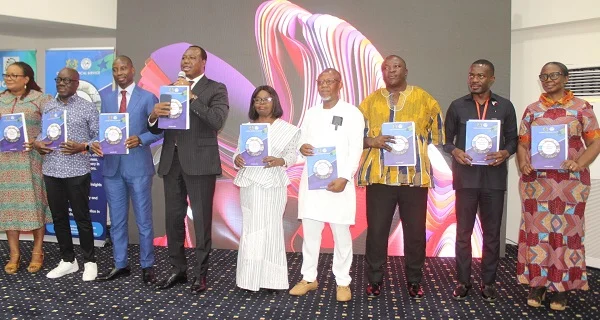A new nationwide study by the Ghana Statistical Service has revealed a decline in the number of citizens reporting bribery incidents to public officials or recognised institutions. The report indicates that the reduction is not because bribery has disappeared but rather because many people believe that reporting such incidents will not result in any meaningful corrective action.
According to the findings, public confidence in the responsiveness of state institutions has dropped significantly. Many individuals who experience or witness bribery feel discouraged from lodging complaints because of past experiences where no follow up occurred. For others, the fear of retaliation or victimisation remains a major barrier.
The report explains that in previous years, both formal and informal channels for reporting corruption saw a relatively higher level of engagement. However, the current trend shows a reversal, suggesting a worrying perception gap between citizens and the institutions tasked with fighting corruption.
GSS noted that the decline in reporting is particularly concerning because bribery often thrives in environments where accountability is weak. When individuals no longer believe that their complaints will be addressed, corrupt practices become harder to detect and prosecute. This undermines governance reforms and weakens public trust in the justice system.
Interviews conducted as part of the survey revealed that citizens feel frustrated by long delays, administrative bottlenecks, and limited feedback from institutions that receive bribery complaints. Some respondents said they had previously reported corruption but received no updates even months after submitting evidence.
The study also highlighted the role of informal dispute settlement, where individuals attempt to resolve issues privately rather than formally. This practice, while convenient for some, often allows corruption to go unpunished. It also contributes to a culture where bribery becomes normalised in everyday transactions.
Experts who contributed to the report argued that state institutions need to improve the visibility of their anti corruption efforts. They recommended regular public communication on investigations, outcomes, and sanctions. Clear evidence that complaints lead to real consequences could rebuild public confidence.
Additionally, the report suggested the introduction of more accessible reporting mechanisms. These include anonymous digital platforms, hotlines available in multiple languages, and a streamlined process for filing complaints. The survey found that many citizens are willing to report bribery if they can do so without exposing themselves to personal risks.
Civil society organisations have also weighed in on the findings. They believe that the report provides an opportunity for a renewed national conversation on accountability. Many argue that the fight against corruption should not rely solely on citizens reporting wrongdoing, but also on proactive detection and internal monitoring by public agencies.
The Ghana Statistical Service concluded that addressing the decline in reporting requires a combination of transparency, swift institutional response, public education, and stronger enforcement mechanisms. Without these, the country risks allowing bribery to become more entrenched and less visible.

